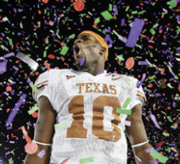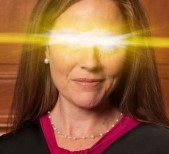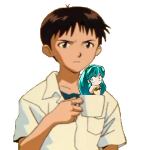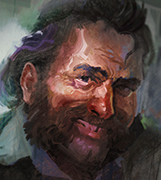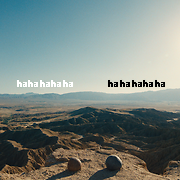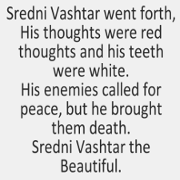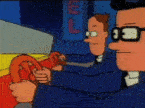|
spacemang_spliff posted:wait does htat mean the 23 year old woman he just married is in that picture That kind of internet detecting isn't necessary because Cook admits he's known her since she was 15 (!). They, of course, claim they were "just friends" between her being 15 and 18, and since it's so common for 45-year-old men to have 15-year-old friends,
|
|
|
|

|
| # ? Jun 7, 2024 15:03 |
|
Mameluke posted:Jfc seth green i don't know what your problem with dane cook is (i'm not defending him i just genuinely don't know) but i wouldn't go to the mat for seth green, whose most recent idea was "what if I make a show starring my ape nft" e: oh dane cook is the married his teenage girlfriend guy, gotcha Arivia has issued a correction as of 19:43 on Aug 3, 2022 |
|
|
|
is this from that same First Lady series with the cringe-inducing Barack/Michelle scene? wouldn't be surprised if so
|
|
|
|
Pepe Silvia Browne posted:It's a free to play smash bros. clones and it's surprisingly good tbh yea it is genuinely surprising that it's a solid game and not some shovelware trash. good on those devs.
|
|
|
|
Srice posted:yea it is genuinely surprising that it's a solid game and not some shovelware trash. good on those devs. my pet theory is that someone at Paramount's games division heard about this and tried to rush that Nicktoons smash clone to market first without realizing what type of cynical cash grab Warner Bros. were going for (short term bait and switch vs long term charging $15 for one set of digital dolly clothes)
|
|
|
|
PostNouveau posted:That kind of internet detecting isn't necessary because Cook admits he's known her since she was 15 (!). They, of course, claim they were "just friends" between her being 15 and 18, and since it's so common for 45-year-old men to have 15-year-old friends, lol does dane cook have a single redeeming quality
|
|
|
|
spacemang_spliff posted:lol does dane cook have a single redeeming quality He converts oxygen to carbon dioxide, which plants need to live
|
|
|
|
spacemang_spliff posted:lol does dane cook have a single redeeming quality idk about "redeeming" but he's almost certainly responsible for "Karen" becoming what it has in recent years
|
|
|
|
spacemang_spliff posted:wait does htat mean the 23 year old woman he just married is in that picture yuuuup, here is where the word groomer could be applied correctly
|
|
|
|
Mokelumne Trekka posted:is this from that same First Lady series with the cringe-inducing Barack/Michelle scene? wouldn't be surprised if so guessing itís from the recent Diana biopic by the same guy who did Jackie.
|
|
|
|
Pepe Silvia Browne posted:my pet theory is that someone at Paramount's games division heard about this and tried to rush that Nicktoons smash clone to market first without realizing what type of cynical cash grab Warner Bros. were going for (short term bait and switch vs long term charging $15 for one set of digital dolly clothes) hell, I'd believe it. I'm glad that at least WB realized you need to make the game good enough to make people want to drop a bunch of money on costumes.
|
|
|
|
Pepe Silvia Browne posted:It's the HOME Box Office! It's not supposed to be in theaters! lol
|
|
|
|
Conservatives are gonna discover they always liked 2006's Employee of the Month and that they could always tell him apart from Mr. Kristen Bell (forget that dudes name)
|
|
|
|
mastershakeman posted:The man from nowhere, no tears for the dead, yellow sea, villainess, witch part 1 (and maybe 2 , haven't seen), confidential assignment, jsa Good Soldier Svejk posted:Extracurricular is good Some Guy TT posted:my name is very gangster just dont forget to turn off that godawful english dub drat horror queefs posted:My extremely Boomer dad loved Vincenzo despite being otherwise totally averse to any shows with subtitles, though I haven't seen it myself https://en.m.wikipedia.org/wiki/Vincenzo_(TV_series) Zvahl posted:josie and the pussycats Thank you for all the recs friends, very much appreciated. Also I love HBO Max, more than the other streaming services, and will be sad if it disappears. Additionally, I will now be playing the multiverse game, which I assumed was a joke.
|
|
|
|
loquacius posted:If you're watching a movie and have no context on it you can go "my god, this cinematography" or "my god, this acting" or "my god, this writing" or "my god, these SFX" and possibly "my god, this set or costume design" but everything else is kind of invisible tbh good cinematography is often invisible. Film making is like jazz, when someone goes to solo, other departments know to play rhythm, etc. A lot of people think good cinematography is lots of colorful lighting and big camera moves that stand out. In some movies the camera/lighting are the driver of emotion and aesthetic. But usually not, and what you think was good cinematography, was supported by amazing acting and score and editing and production design. I will write an insane rant on cinematography using Glenngary Glenn Ross as an example if one of you requests it.
|
|
|
|
Breakfast All Day posted:bohemian rhapsody has rifftrax tier b movie editing (as in trying to do simple shot-reverse but just failing horribly, not anything interesting) but won an oscar for it, so i guess it was "saved" by editing in that sense movies that want to get best picture pump the less popular categories so the bluray box can say "nominated for 7 academy awards". Sound mixing and sound editing used to be different categories and they just go to loud movies. Costume goes to period movies. it's all a scam.
|
|
|
|
The oscars are an idiotic industry award, you should see what each guild awards their own members. The emmys are literally a gangster enterprise as well. Hollywood is all fake
|
|
|
|
Breakfast All Day posted:bohemian rhapsody has rifftrax tier b movie editing (as in trying to do simple shot-reverse but just failing horribly, not anything interesting) but won an oscar for it, so i guess it was "saved" by editing in that sense the joke with the best editing oscar is that it == *most* editing
|
|
|
|
Antonymous posted:good cinematography is often invisible. Film making is like jazz, when someone goes to solo, other departments know to play rhythm, etc. Please do it sounds interesting
|
|
|
|
they're really gonna kill by far the best streaming service............. "lmao" https://twitter.com/FilmUpdates/status/1554900258529878017
|
|
|
|
I mean not making anymore "max originals", I get that part. But the app just started working correctly like 4 months ago, please don't kill it and make a new one that doesn't work again lmao
|
|
|
|
boo hiss this probably means the venture bros movie is dead
|
|
|
|
Pepe Silvia Browne posted:I mean not making anymore "max originals", I get that part. But the app just started working correctly like 4 months ago, please don't kill it and make a new one that doesn't work again lmao the old one would just randomly stop playing videos all the time, hopefully the new one will make my computer catch on fire.
|
|
|
|
|
cool I guess western animation is mostly dead again rip it was a fun few years pour one out for primal
|
|
|
|
i think we're much overdue for another unwatned hanna-barbera revival
|
|
|
Pepe Silvia Browne posted:I mean not making anymore "max originals", I get that part. But the app just started working correctly like 4 months ago, please don't kill it and make a new one that doesn't work again lmao Such is the streaming business. Gotta split up seasons and shows across 3 different platforms, shuffle them around between each other, make barely functional apps, and then now shutter a perfectly good platform for no good reason because an executive wants to feel important by making big boy decisions.
|
|
|
|
|
Wraith of J.O.I. posted:they're really gonna kill by far the best streaming service............. "lmao"
|
|
|
|
Antonymous posted:I will write an insane rant on cinematography using Glenngary Glenn Ross as an example if one of you requests it. do it but with a different movie please
|
|
|
|
i say swears online posted:i think we're much overdue for another unwatned hanna-barbera revival gritty wacky races reboot where wacky is an acronym for something
|
|
|
|
Zvahl posted:gritty wacky races reboot where wacky is an acronym for something W.H.A.C.K. races starring the hanna-barbera crew and kendrick lamar
|
|
|
|
friendly reminder they cancelled raised by wolves marg bar warner bros marg bar discovery+ marg bar hobomax
|
|
|
|
remember the milksnake will be our rallying cry
|
|
|
|
90 day fiance is absolute primo trash, just the worst show made by the worst people filming dumpster fire relationships shout out to season one where some dude brings over a woman from Russia who very clearly has an eating disorder and nobody ever does anything about it
|
|
|
|
dudes rock
|
|
|
|
Wraith of J.O.I. posted:they're really gonna kill by far the best streaming service............. "lmao" smacks of revenge against the platform for the pandemic movie releases
|
|
|
|
robot grandmommy is gonna unplug the woke moralist execs over at warner bros
|
|
|
|
StashAugustine posted:Please do it sounds interesting Okay. This paragraph is my background which you can skip, but just to understand where I'm coming from: When I got my masters degree in cinematography it was from the #1 rated school for film in the USA. The school was brutal, the first year was 13 hour days 6 days a week. Many of my classmates got divorced. The school is a conservatory which means you create a work, and get it critiqued, there's not really grades or papers or anything. You're just shooting stuff. When you shoot something, you sit underneath the screen as your entire class watches and then you have to sit there as they critique your work for an hour. You do it again for each departement with the teachers critiquing it. We're making shorts for classwork so it's about 15 minutes runtime. So I had to have all my peers critique my film as a whole, which I made with a classmate director, editor, etc. I did cinematography. Then I had my teachers critique my cinematography specifically in front of only the cinematography students. And they are intentionally brutal, and you are not allowed to talk, and your cinematography classmates critique you anonymously, which you receive later. The idea is that when your film goes in front of an audience, you cannot say 'oh, well that day I was feeling tired, it was raining etc'. The work that goes on screen is 100% of your relationship with the audience. I've since worked 3 years as a narrative cinematographer. The basis of critique in my school was always centered on story. Story is not plot, plot is superficial. The story of starwars could be told as a western, or a samurai flick, you can change the genders of characters and so on. You cannot change that Luke wants to redeem his father after finding out that evil was stronger than good - that's story. The role of the film maker is to have a story intent, and an artistic execution. That's really all the choices a film maker makes, was the story they intended to tell good, coherent, etc. And was the artistry they used to execute it effective - did it work. Film tells story through an illusion which I will call 'empathy'. We recognize the characters on screen and worry about them, want to see them achieve their goals, identify with them, fantasize 'what if we were like them', etc, through empathy. The way the empathy is communicated is by what in writing is called 'third person intimate'. We do not have a first person account, where we can hear their thoughts or see through their eyes directly, but we also do not have an objective or omniscient understanding of every character who appears on screen, we learn what the character learns, see what they see. Each moment of the story identifies with one narrative point of view, and overall the film will follow one character or one group of characters' point of view. We don't need to always have empathy with only one character, but we will prefer the main character in moments of conflict. We build empathy through the moments specifically highlighted by the film. We cut to a character's hand clenched, we cut to their reaction to hearing good news, we cut to a close up of a gun that's held to their head or w/e. Even screenplays are written like "John looks at his feet" not "john felt embarrassed and couldn't bear to maintain eye contact" - we don't explicitly know why john makes those choices, but through empathy we immediately understand his emotional state from observation. Film making's worth is judged solely by the audience, and it is experiential not intellectual. When a film 'resonates' with the audience, when they get some enjoyment out of it - which could manifest as crying, feeling tension, feeling afraid, not just pleasure but enjoyment, I would say the film is 'working'. Working is the fundamental objective. It's just often when it doesn't work, it's because empathy with a character who's conflict is the story, wasn't achieved, and when it's working, it was achieved. So this is the rule on which I immediately analyze things, but there are of course always amazing counter examples. I just think they are rare. So to sum up this part, I believe story, the foundation of narrative film, is told through a character's point of view which we understand through the illusion of empathy, and a filmmaker's goal is to never break this empathy, and enhance it whenever possible. Watch this: https://www.youtube.com/watch?v=O6ybfVT9gxA Ed harris enters and the camera is pinned to him. We are 'with him' in this moment, the world moves by him just like the world moves by us in our subjective experience of it. He notices Baldwin just as the POV switches to Alan Arkin, we are over his shoulder and seeing what he sees. It might not be easy to tell, but in this first shot the camera also booms down from Ed Harris's eye level to a lower position better matching Alan Arkin and jack lemmon. Ed harris gives his line when the camera is 'with him' and Alan gives his line when we are 'with him'. Both gives us a cue - who is this baldwin guy? this question only makes sense if we don't identify with Baldwin but we do with the other people in the room. We aren't asking -who are all these people? we are focused on wondering about Baldwin. Next 3 or 4 shots baldwin controls the point of view. We get a dynamic boom down from above his head, and then a tracking shot matching what he see's. He's trying to set a dynamic shift of energy in the room and establish control of these people, who are sitting below his eye level. When we see Jack Lemmon pouring the coffee, the camera is far away - again Baldwins position. Jack Lemmon's performance makes him look a little inadequate, and caught unaware - how Baldwin sees these guys. Lemmon's shot is static - again he's caught unaware, in the spotlight, pinned, a true POV shot from Baldwin's character. Then we have the first exchange. The camera is across the room, and dollys to meet Baldwin as he says "you think I'm loving with you". This is how Lemmon sees him. The shot ends with Baldwin looking almost directly into camera and the others in the room, out of focus behind him, looking on to see who will win the conflict. Pressure is on Lemmon now. He's fired. Baldwin moves back to the front of the room, camera moves with him. He moves - camera moves. He's in control. low angle shot for "Oh, have I got your attention now?" - power, he's above them, they're starting to get it. at 1min 46 seconds another true POV - Ed harris sits down to hear what he's got to say. Ed harris is the character with the strongest arrogance. 2:09 - Camera is at Ed harris's eye level as he questions if Baldwin is serious. The film maker is asking the audience to identify with him now, we viewers should also be questioning - isn't this absurd? Are we really in trouble? Tension. No longer the power fantasy of being baldwin, now the worry for the security of our other characters. They glance at eachother. When we cut back to baldwin we are further away and lower - the POV of someone sitting in those desks. The POV of Ed Harris, Jack Lemmon and Alan Arkin. At 3:30 - push on on the final Always Be Closing - this is important. Still below Baldwin's eye level. At 4:00 - Confrontation between Baldwin and Lemmon - On both shot and reverse shot camera is at Lemmon's eye level. This moment is not a question of who is right. This is about what Lemmon is feeling and what he's going to do about it. Baldwin's not part of the audience's empathy right now. Just lemmon. Baldwin already won. At 4:22 - Baldwin sits down with Ed Harris. Now it is a question about who will win, they are eye to eye. We feel the conflict is between the two characters, not inside of one character. For the rest of the scene, whenever we see the men in their desks or look at Baldwin from the front, the camera is lower - at desk eye level. Even taking out the brass balls. Unless he's talking to Spacey - then we are at Spacey's eye level. I also think the choice of rain and cars passing are genius. The world is harsh, but they were safe in this little room until now, another force of nature has entered. The cars passing to me makes it feel more like the world doesn't care what happens to you - everyone outside is going about their own business, unaware, you alone have to figure it out. Setting it at night is genius - shows they value their job above all else and work late. Shows the stakes. The dim lighting shows its a tense place to be, not friendly and not matter of fact. Each desk is lit by its own lamp - each person works form themselves. These choices involve time of day which the screenwriter decides, set dressing which the production designer decides, and blocking, which director and actors decide, but they are very much part of camera and lighting and so cinematography and I will always be giving notes like this when I work with people. "can we give each desk its own lamp so I can light each actor in an island of light, making them feel less like a team and more on their own" a big part of this story. Now look at this: https://www.youtube.com/watch?v=1X3p42GaM5I the camera tracks affleck, at his eye level, in almost all of his shots, so in this scene it's affleck all the way through? but we have a random cut to Ribisi at eye level, and he looks like he's at odds with affleck. But by the eyeline, I don't feel he's even looking at affleck. On the cut affleck is moving left, but Rabisi's eyes aren't tracking anything. He just blinks a few times. Cut back to affleck at affleck's eye level. There's some inserts of extras watching affleck move - why? who's point of view - the extra's? what does that have to do with the story, neither affleck nor rabisi see them looking so it adds nothing to our empathy, it's just a 'thing that happened'. at 0:40 we are over affleck's shoulders, he's obscuring the room. where is rabisi? cut to - rabisi is under him. Shows rabisi wants to stand up but affleck is too imposing, kinda works but again they share lighting, the camera splits the height of their eyelines - not based on empathy for either character. trying to have it both ways - make us empathize with opposing viewpoints simultaneously - it will never work. better if they were across the room from eachother or the camera was low to show rabisi grow impatient. make affleck's hand darting around feel really anoying like a fly by your ear. I can identify with that and feel what Rabisi must be feeling. at 1:20 we start the final confrontation, affleck starts to win over the extras, but we film the extras way off their eyeline, almost at 90 degrees. The camera is in no one's point of view. its just a throwaway shot. We are far from the extras, above their eyes slightly, and off axis. We could see from Rabisi's point of view one extra turn to another and smile, or from affleck's see that he's winning them over, or from the extra's the excitement they're having between themselves. but we get none of those hints from where the camera is. also starting around 1:20 affleck is lit from below, I kinda like this, he looks not well intentioned. Rabisi is lit more evenly, he seems more calm and collected. This scene also has a lot of tight shots without context. Cinematoraphy has to show you how the room looks to the character. If Rabisi or Affleck were claustrophobic in this space I could see shooting it this way, but they are both comfortable in this room. I don't know if it's day or night. Screenplay loglines only give 3 pieces of information - interior or exterior, location, and time of day. cinematoraphy should never gently caress up communicating basic information like where we are, when we are there, and how the characters are arranged in the room. This scene starts by failing at two of those. it also doesn't tell me how it feels to be there cause the lighting is unexpressive but also not drab and matter of fact - its just kinda ugly. It doesn't put me in the seats of the people sitting there. Antonymous has issued a correction as of 23:06 on Aug 3, 2022 |
|
|
|
TheSlutPit posted:Speaking of funny Nathan tweets did anyone post this yet lol What is this!? A Jihad for ants!?!?
|
|
|
|
awesome thanks
|
|
|
|

|
| # ? Jun 7, 2024 15:03 |
|
Antonymous posted:Okay. This paragraph is my background which you can skip, but just to understand where I'm coming from: When I got my masters degree in cinematography it was from the #1 rated school for film in the USA. The school was brutal, the first year was 13 hour days 6 days a week. Many of my classmates got divorced. The school is a conservatory which means you create a work, and get it critiqued, there's not really grades or papers or anything. You're just shooting stuff. When you shoot something, you sit underneath the screen as your entire class watches and then you have to sit there as they critique your work for an hour. You do it again for each departement with the teachers critiquing it. We're making shorts for classwork so it's about 15 minutes runtime. So I had to have all my peers critique my film as a whole, which I made with a classmate director, editor, etc. I did cinematography. Then I had my teachers critique my cinematography specifically in front of only the cinematography students. And they are intentionally brutal, and you are not allowed to talk, and your cinematography classmates critique you anonymously, which you receive later. The idea is that when your film goes in front of an audience, you cannot say 'oh, well that day I was feeling tired, it was raining etc'. The work that goes on screen is 100% of your relationship with the audience. I've since worked 3 years as a narrative cinematographer. Nice.
|
|
|



